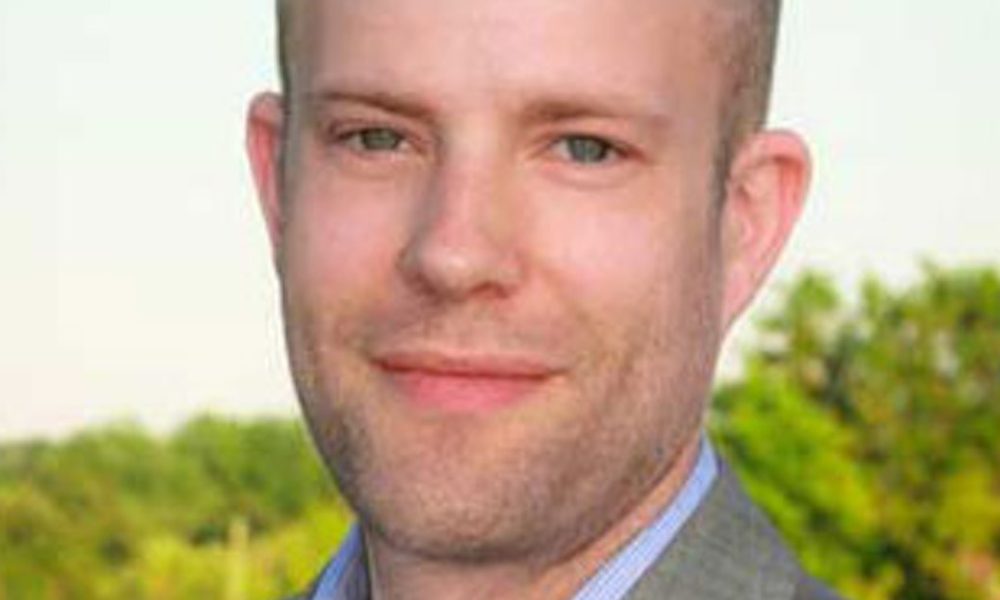 Dan Isaacson – One Gro CEO
Dan Isaacson – One Gro CEO
One Gro Investment Group has officially disbanded their plans to open a cannabidiol (CBD) dispensary this year at their Creswell building at 285 E. Oregon Ave.
CBD is a hot trend right now, and after One Gro lost the November 2017 election by nearly 85 percent, with intentions to lift the ban of marijuana sales in Creswell, One Gro said they would resort to their Plan B – to implement a CBD dispensary instead.
CBD is not psychoactive, and because of this can skirt the legal ban on marijuana and is legal almost everywhere. But One Gro CEO Dan Isaacson said the tumulcity of the cannabis industry in general right now is comparible to that of the 2008 Housing Crisis, leaving One Gro to reevaluate opening another dispensary.
”The market is very volatile. It’s gonna take the season to really sort out,” Isaacson said. ”The state produced four times the consumption capacity for the year (in 2017). The ripple effects haven’t been seen yet but, hey, won’t be pretty for many in the industry.”
He said there isn’t a justifiable rationale for spending money on office space at the Creswell building if they can condense and operate without it. He said One Gro is currently seeking to sublease the building, and all has been cleared with the Marquess family, which owns the building.
He said he anticipates that there will be the ”Great Depression of Weed” by the end of 2018 and at least half the existing cannabis businesses will be closing up shop.
”The days of putting 200 plants in the ground and making a small income for your family are gone,” Isaacson said. ”Anyone not vertically integrated in the marijuana industry will be likely out of business this time next year. ”
To be vertically integrated means having licenses for all stages of processing – so, having licenses for a farm, a processing facility, retail and the like. Isaacson said that One Gro became vertically integrated in January 2018. One Gro has a better chance of survival than most in the industry, Isaacson said, but the number of people who are vertically integrated is very limited.
”We’re doing well, with respect to the fact that we’re integrated and have the revenue and capacity, but much depends on the future of the market and we just don’t know,” he said.
He said that Oregon Liquor Control Commission (OLCC) was processing licenses hand-over-fist last year, churning out 150 to 200 licenses a month. This year, Isaacson said they’ve processed 10 licenses since Jan. 1.
”If you don’t have a processing facility now, you’re out before (your license is) even approved,” he said.
”The OLCC switched from processing licensing applications to enforcing current ones, which is good for stopping the bleeding, but we still have patients in ICU,” he said.
He said that after he can better gauge how this year will go for the marijuana industry, One Gro will revisit the idea of opening a CBD dispensary in Southern Lane County.
”When the dust settles and we are able to look at how our year went, and if we’re busting at the seams for space and people, we’ll need to see where that puts us in terms of space, location,” Isaacson said. ”I still believe Creswell will be it. I don’t believe it will be Eugene, but somewhere between South Eugene and Cottage Grove. We have a commitment to people there.”
He said, ”what we always liked about Creswell is that it is right between everything,” adding that Creswell has a nice community with nice people and he still visits a few times every week. He added that the fact that Creswell has its own airport is critical for helping One Gro travel to other states for the promotion and distribution of their One Gro THC Inhaler.
Isaacson said that despite the OLCC limiting licenses, there will still be a larger marijuana yield in 2018 than last year – about five times the consumption rate.
”It’s absolutely going to happen. Just like a housing bubble, get out (of the marijuana industry) as fast as humanly possible,” Isaacson said.
He said that the overcapacity issue is due to a flood of people signing onto the legal industry in Oregon. Consequently, overcapacity is depressing the price per pound of marijuana in Oregon, causing product to expire on the selves. In turn, it’s feeding the black market in other states that have yet to legalize marijuana.
He said even award-winning Oregon marijuana processors are getting nabbed for transporting product to other states, like Damascus’ Richard Wilkerson, who was caught in November 2017 on his way to Louisiana with 110 pounds of the drug, plus about $1.1 million in a cannabis extract known as ”shatter,” in his U-Haul.
For every story you hear like that, Isaacson said, there’s hundreds and hundreds you don’t.
He said that if professionals are that desperate to move their product, homegrown farmers with limited resources suffer that much more.
”You’ve got a family of four just trying to support their family and make rent,” he said. ”What do they do? It’s their bread and butter.”







